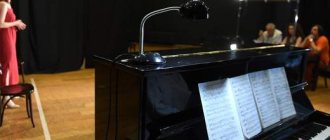defectologist
is a specialist who studies the developmental characteristics of children and corrects existing disorders. A defectologist helps children adapt to kindergarten, school, and society.
Psychologist-defectologist
is a specialist in two profiles - defectology and psychology. He is a teacher, not a medical professional, so he is not required to have a medical education.
Who is a defectologist
A defectologist is a correctional teacher who works with children with developmental disabilities. Despite the fact that the science of defectology developed at the intersection of medicine and pedagogy, this specialist is not a doctor. He is a special education teacher, and his main task is teaching and raising children with disabilities (disabilities).
Workers of this profile can be found not only in kindergartens and schools. They can be found in rehabilitation and social centers and clinics. He can work both with a specific child and with a group.
Defectology includes several branches:
- Oligophrenopedagogy - work with intellectual disabilities (mental retardation, mental retardation);
- Deaf pedagogy - work with hearing problems;
- Typhlopedagogy - work with visual impairments;
- Speech therapy - work with speech disorders.
The work of a defectologist in a kindergarten is very diverse and depends on specific disorders. You will rarely find this specialist in a regular school - he works in specialized schools for children with developmental disabilities. The school usually only has a speech therapist who deals with children with speech disorders.
Another important aspect of the work of a defectologist is the instillation of social and everyday skills. A child with intellectual disability does not adapt well to life, and blind people cannot navigate in space. A correctional teacher is called upon to help cope with this.
Specialist salary
On average, a teacher’s salary is slightly higher than that of a special education teacher, but their work schedule is different. The difference in financial terms depends on several factors, due to which the following can be noted:
- In government institutions, workers' wages are somewhat lower, since they belong to budgetary organizations. Private preschool educational institutions and accredited schools pay employees a larger monthly salary, however, requirements and conditions may differ (work on weekends, in a room with cameras installed, etc.).
- The salary depends on the teacher’s salary and the number of groups of children with whom he conducts classes.
Most speech pathologists-speech pathologists have an additional workload of lessons with students with whom they study privately at home. This practice is widespread in the country; it is due to the need for systematic correctional classes with special children. The hourly wage for a teacher is significantly higher than in an educational institution.
What kind of work does he do with children?
Teaches, educates, introduces them to the world around them, and more - this is what a defectologist does with children. This is not the most complete list of activities. They depend on the type of violation. The overall goal is to develop motivation for learning.
At the first stage, the teacher-defectologist conducts an examination. It affects all aspects of development. It is checked how children make contact, how they react, and what their pace of work is. Thinking, understanding of instructions, visual and auditory perception are examined.
Based on the results obtained, the teacher divides the children into groups. Pupils in them have approximately the same level of development. It is not possible to conduct group lessons with some children: autistic people fall into this category; these children are more often assigned to individual lessons due to the specific nature of this developmental disorder.
Classes are conducted in several directions:
- At the first stage, familiarization with the surrounding world is carried out. Ideas about it and its laws are formed. They develop attentiveness and responsibility for their actions.
- The second stage is the development of elementary mathematical concepts. During classes, the defectologist talks about the size, shape of objects and other characteristics.
Much attention is paid to sensorimotor development. Separate work is being carried out on the development of sensations. For this purpose, finger pools are made with various cereals and small toys. It is useful to prepare aromatic food, study vegetables, fruits, berries, touch them, examine them with your fingers. All this helps children develop different sensations.
Children with mental retardation have problems with games. It is difficult for them to contact someone and follow the rules. Therefore, they need the help of a speech pathologist. He competently guides the actions of his students and helps them find a common language with each other.
Consultations for parents are also indispensable. A defectologist can answer all their questions, give advice and help cope with the child’s problems.
What symptoms should you consult a doctor for?
An unscheduled inspection is necessary in the following cases:
- at one and a half years old, the baby does not use individual words or syllables, does not form phrases, speech is monosyllabic and slurred;
- at two years, speech is slurred or the baby refuses to speak at all;
- at three years old, the child pronounces sounds too slowly or too quickly, stutters, confuses endings, cannot form a simple sentence, and his vocabulary contains less than 30 words;
- at four years old, a poor vocabulary, communication consists of short phrases and an abundance of mistakes;
- at seven years old, the child cannot or does not write/read well.
Absolutely all children under 3 years of age must undergo an examination and consultation with a defectologist. Why at this age? Until the age of 3, a child’s speech is formed and speech diagnoses are not given, since it is unknown how the child will speak later. At this time, the defectologist will determine the baby’s level of development, whether he is appropriate for his age, and check his emotional/physical/speech readiness. After 3 years, when many sounds have already been formed and are pronounced clearly, the defectologist can begin to correct them and “set” the desired sound.
If your child has one of the above symptoms, contact a neurologist. He will rule out serious pathologies of the nervous system, and then send you to an appointment with a speech pathologist for speech correction.
There are no age restrictions for defectological diagnostics. Timely treatment is the key to successful treatment, but the problem can be corrected even in advanced cases. A speech therapist will help improve or form a vocabulary, add syllables and phrases. In some cases, special massage, physiotherapy or other therapeutic methods will be needed.
Examples of working methods
The educational process is based on the characteristics of the disorder. For example, with hearing problems, oral speech decays. This is especially true for preschool age, since during this period there is an active formation of speech.
Hearing loss and lack of normal communication lead to the baby becoming silent. In the absence of proper correctional support, he loses the skill forever. Later he is taught sign language, but this greatly limits his ability to integrate into society.
Adaptation to real life is what a defectologist does in kindergarten and school. The teacher of the deaf focuses on the development of oral speech. The typhlopedagogue has to teach in a slightly different way. Its main task is the development of social and everyday skills. It is important to teach ideas about the world around us, to teach students to perceive the world “through their fingers.”
For this purpose, special voluminous books are created. They are made of different materials and depict: buildings, streets, animals, plants. All this allows students with visual impairments to form ideas about the world around them.
It is important to instill self-care skills, since sometimes parents do not allow their child to do this, depriving him of the chance for an independent life. Closer to school, preparation for mastering Braille begins. This is a raised dot pattern, which is analogous to regular writing. The blind perceive it through their fingers and read what is written.
Oligophrenopedagogues work with children with intellectual disabilities. This is mental retardation and mental retardation. Working with such students is based on the development of thinking. They are also taught self-service and communication skills. Children with mild mental retardation are taught to work.
Therapeutic techniques
Classes of a speech therapist-defectologist with a child are held primarily in a fun, playful way. The duration of one session usually takes no more than half an hour, which allows the child to concentrate as much as possible on the learning process.
In their practice, specialists in this field use a number of the following therapeutic techniques that have proven their effectiveness and high efficiency:
- massage of the speech apparatus;
- breathing exercises;
- physical exercises, warm-up;
- finger gymnastics;
- articulation exercises;
- logorhythmics;
- phonetic rhythm;
- Su-Jok therapy.
Classes promote the development of memory, attention, thinking, fine motor skills, and enrich the child’s vocabulary.
The main task of a speech pathologist-defectologist is to improve the speech skills of a small patient, both oral and written. For these purposes, children are engaged in making sounds and articulation.
The duration of treatment is determined by the doctor individually, taking into account the scale of the problem, the diagnosis, the age and personal characteristics of the particular child.
Problems of defectology
In modern conditions, not all persons with disabilities receive assistance. There are children with a complex structure of the defect, for example, deaf-blind. Until the last century, they were all considered unteachable, until the famous American teacher Anne Sullivan showed an example of teaching such a child. It is her photograph that is the title of this article.
Her student, Helen Keller, lost the ability to hear and see after a serious illness. The girl's fate was unenviable - an orphanage. But Sullivan has proven that it can be adapted to society. Keller became an activist, writer, and lecturer. Her activities were widely publicized in society. However, in the modern world, teaching such children is associated with a number of difficulties.
The increased number of children with autism spectrum disorder (ASD) requires speech pathologists to develop new training programs. In the last century they were considered mentally retarded, but modern research has refuted this. Work with such children should be aimed at developing communication skills.
To summarize, we can say that a defectologist carries out extremely complex, but very important work. Important for both the baby and his parents. This allows children to be socialized as much as possible in society.
How is the reception going?
At the first consultation, a speech pathologist-defectologist diagnoses the speech development of a small patient, taking into account his age characteristics, and identifies possible deviations and defects. A conversation is held with the parents, a study of the medical record, especially if the baby has somatic diseases, and an analysis of the collected medical history.
In some cases, a specialist may prescribe additional types of instrumental diagnostic tests for a small patient:
- electroencephalography;
- spondylography;
- dopplerography;
- computed tomography of the brain.
Based on the information received, the doctor develops an individual treatment plan for the child, correction of existing disorders, and gives parents recommendations regarding the process of home education.
Professional knowledge
- Correctional pedagogical techniques, methods and techniques.
- The ability to establish psychological contact with students.
- Ability to analyze the results of a medical examination, conclusions of teachers and psychologists.
- Diagnostic techniques.
- Deep knowledge in the field of psychology and sociology.
- Basic knowledge of medicine.
- The skills and knowledge necessary to develop an individual correction program.
- Knowledge of 1 foreign language (preferably, but not required).
Famous representatives of the profession
Vlasova Tatyana Aleksandrovna
Soviet psychologist and defectologist
Doctor of Psychological Sciences (1972), Professor (1976), Academician of the Academy of Pedagogical Sciences of the USSR (1982)
More details
Azbukin Dmitry Ivanovich
Russian Soviet defectologist, psychoneurologist
Doctor of Pedagogical Sciences, Professor. Honored Scientist of the RSFSR. He wrote a number of works on psychiatry, which deal with many problems of the pathology of the human psyche.
More details









